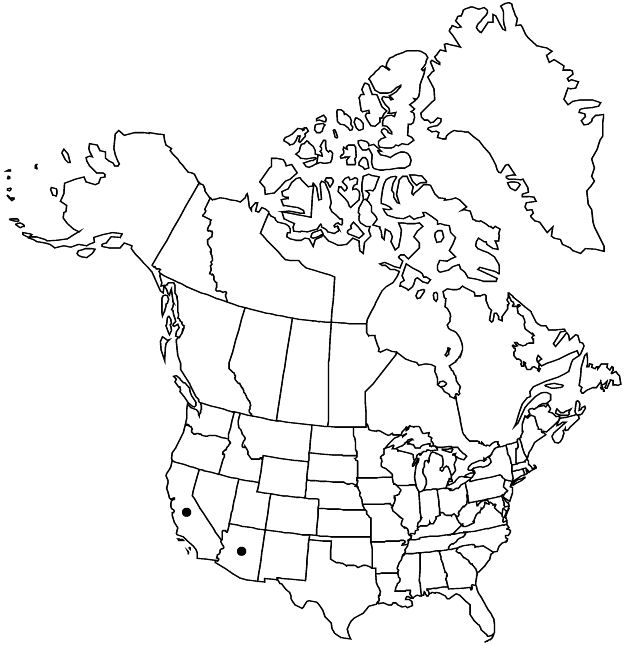Fagonia pachyacantha
in N. L. Britton et al., N. Amer. Fl. 25: 105. 1910.
Perennial herbs or subshrubs, to 0.6 m, to 1 m diam. Stems ± prostrate, radiating from plant base, sparsely branched, dark green, not noticeably slender, ultimate branches densely short-stipitate- to subsessile-glandular, glands globular (drying to cup-shaped), golden (making branches appear yellowish from a distance), 1 mm diam.; older stems glabrate basally, not scabrous. Leaves (1–)3-foliolate; stipules straight, spreading to slightly reflexed, stout, linear-subulate, 3–16 mm, about as long as petioles, glandular to glabrate; petiole 2–16 mm, glandular to glabrate; leaflets ovate to elliptic, slightly obovate, or linear and terete, glandular, becoming glabrate, ± as long as or longer than petiole, apex spinulose, often fleeting, terminal to 26 × 10 mm, laterals to 20 × 7 mm, shorter and narrower than terminal, one or both commonly caducous. Pedicels 1–7 mm, glandular. Flowers to 1.5 cm diam.; sepals green to purple, ovate-lanceolate, 2–4 × 1–1.5 mm, apiculate, glandular to glabrate; petals light to dark red-purple, 5–8 × 2.5–5.5 mm; stamen filaments 3.5–5 mm; ovary 2 mm, glandular, hairy; style 2–3 mm. Capsules 3.5–5.5 × 4–5 mm, puberulent, usually glandular; style 1.5–4 mm, not or barely wider at base.
Phenology: Flowering Nov–May.
Habitat: Flat, sandy or rocky desert habitats.
Elevation: 0–500 m.
Distribution

Ariz., Calif., Mexico (Baja California, Baja California Sur, Sonora).
Discussion
Fagonia pachyacantha is found only in the Sonoran Desert.
Selected References
None.